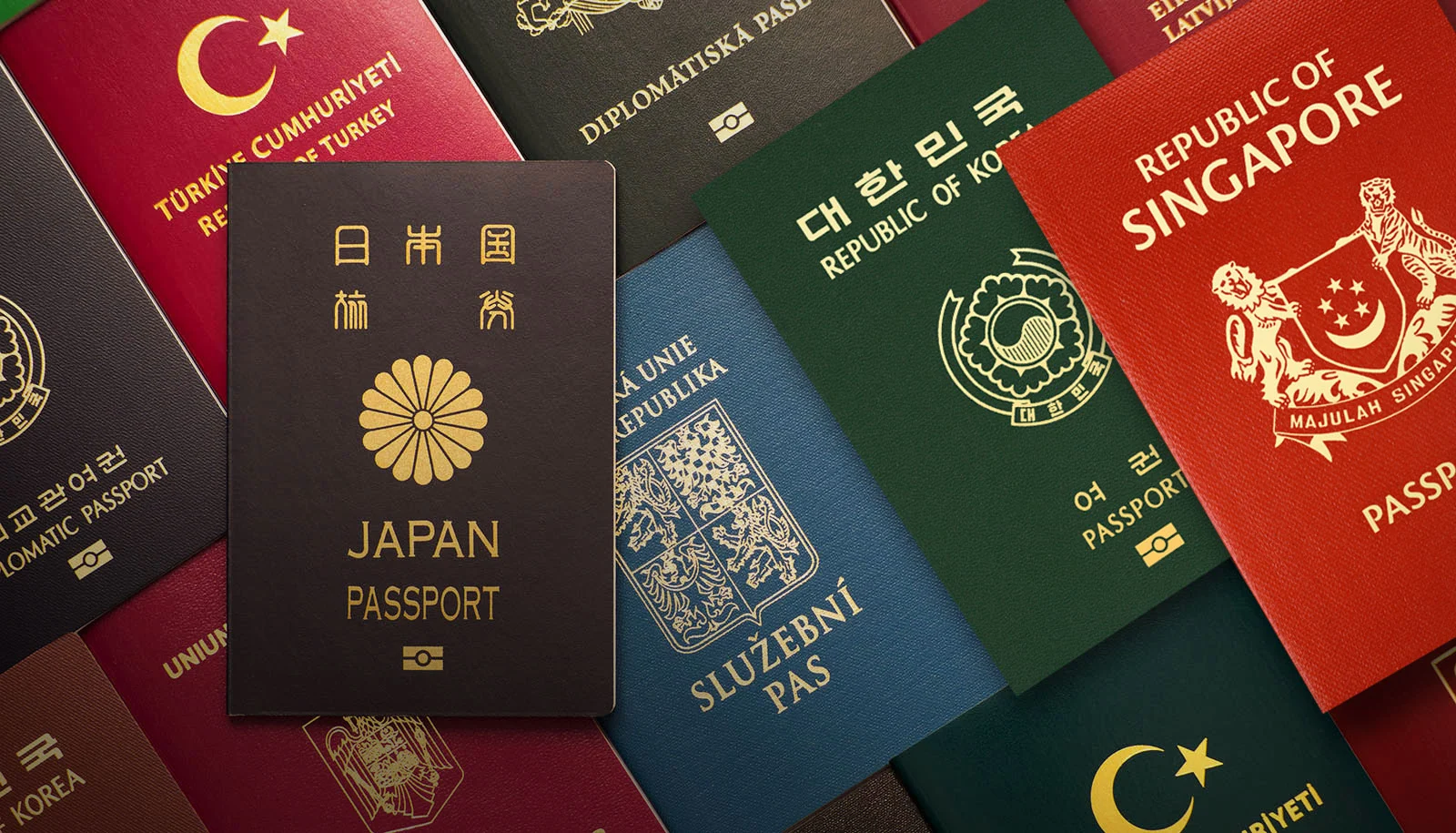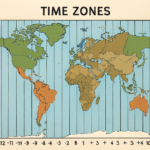
Passports are essential documents that facilitate international travel, serving as proof of identity and citizenship. They not only allow individuals to cross borders but also reflect the diplomatic relationships between countries. Understanding the various aspects of passports, including their features, statistics, and travel implications, can enhance the travel experience and ensure compliance with international regulations. Here are some interesting and verified facts about passports that highlight their importance in global mobility.
First Passport: The concept of a passport can be traced back to ancient times, with the earliest known passport issued in 450 B.C. by the Persian King Artaxerxes I. This document was granted to Nehemiah, a Jewish leader, allowing him safe passage to return to Jerusalem after his service in the Persian court. This historical document highlights the early recognition of the need for safe travel and official permission, laying the groundwork for modern passport systems that govern international travel and security.
Modern Passports: The modern passport system began to take shape in the 19th century, primarily as a response to the increasing complexity of international travel. The United Kingdom issued the first standardized passports in 1862, which included specific features such as the holder’s name, nationality, and a physical description. This standardization was crucial in facilitating diplomatic relations and trade, as it allowed for easier identification and verification of travelers across borders.
Color Variations: Passports are available in various colors, which often reflect the political or cultural affiliations of the issuing country. The most common passport colors are navy blue, black, and red. For example, many European Union countries use burgundy red passports, while the United States and Canada issue navy blue passports. The color can signify membership in certain organizations, such as the red passports of EU nations, and can also be influenced by historical or national symbolism.
Most Powerful Passport: As of 2023, Japan holds one of the most powerful passports globally, allowing its holders visa-free or visa-on-arrival access to 193 countries and territories. This high level of mobility reflects Japan’s strong diplomatic relationships and the trust other nations place in its citizens. The strength of a passport is often a reflection of a country’s international standing and the security of its citizens, making it a valuable asset for global travelers.
Least Powerful Passport: Afghanistan is known to have one of the least powerful passports, offering visa-free access to only 27 countries. This limited mobility is indicative of the country’s geopolitical situation and the challenges its citizens face when traveling internationally. The restrictions on Afghan passport holders often stem from security concerns, diplomatic relations, and the historical context of the region, making it difficult for many to travel freely.
Longest Validity: Passports typically have a validity period of up to 10 years, although this can vary by country. For instance, many countries, including the United States, issue adult passports that last for 10 years, while children’s passports are often valid for only 5 years. This distinction reflects the need for regular updates to account for changes in a child’s appearance as they grow. The duration of passport validity is crucial for international travel planning, as many countries require that passports remain valid for a certain period beyond the date of entry.
Smallest Passport: The Vatican City issues the smallest passport in the world, measuring just 3.5 inches by 5 inches. This unique passport is granted to members of the clergy and other officials of the Vatican, allowing them to travel for official duties. The compact size reflects the Vatican’s status as a city-state and its limited diplomatic needs compared to larger countries. Despite its small dimensions, the passport serves the same essential functions as larger passports, providing identity and travel authorization.
Largest Passport: The Philippines is known for issuing the largest passport, which contains 66 pages. This extensive number of pages is designed to accommodate frequent travelers who may require additional visa pages for international travel. The large passport reflects the high volume of travel among Filipinos, many of whom work overseas and require multiple visas for their journeys. The design and layout of the passport also include various security features to prevent forgery and ensure the integrity of the document.
Most Expensive Passport: The most expensive passport is the diplomatic passport of the United States, which costs $135 for processing. Diplomatic passports are issued to government officials and their families, granting them certain privileges and immunities while traveling abroad. The higher cost reflects the additional security measures and the importance of these passports in facilitating international relations and diplomacy. The investment in a diplomatic passport underscores the value placed on official travel for government representatives.
Passport Pages: A standard passport typically contains either 28 or 48 pages, depending on the issuing country and the specific passport type. Some countries also offer additional pages for frequent travelers, accommodating the need for more visa stamps and entry/exit records. The number of pages can significantly impact a traveler’s experience, especially for those who travel extensively, as running out of pages can complicate travel plans. The layout of these pages often includes security features and designs that reflect the issuing country’s culture and identity.
Biometric Passports: Biometric passports, also known as e-passports, were introduced in the early 2000s to enhance security and reduce fraud. These passports contain an embedded microchip that securely stores the holder’s personal information, including their name, date of birth, nationality, and a digital photograph. The chip also includes biometric data, such as fingerprints or facial recognition templates, which can be used to verify the identity of the passport holder at border control. This technology aims to improve the efficiency of immigration processes while increasing security measures against identity theft and forgery.
Passport Photos: Most countries have strict requirements for passport photos to ensure consistency and security. Typically, passport photos must measure 2×2 inches and adhere to specific guidelines regarding background color, lighting, and facial expression. For instance, the background must usually be plain white or light-colored, and the subject must face the camera directly with a neutral expression. These regulations are in place to facilitate easy identification and to ensure that the photographs are suitable for automated facial recognition systems used at border control.
Passport Renewal: In the United States, the process for renewing a passport can take up to 12 weeks under normal processing times. However, individuals can opt for expedited services, which reduce the processing time to approximately 5-7 weeks for an additional fee. The renewal process typically involves submitting a completed application form, a recent passport photo, and payment. It is crucial for travelers to plan ahead and renew their passports well in advance of any planned international travel, as processing delays can occur, especially during peak travel seasons.
World’s Oldest Passport: The oldest known passport still in existence was issued by the United Kingdom in 1851. This historical document provides a glimpse into the early practices of international travel documentation and the importance of identity verification. The passport was issued to a British citizen traveling abroad, reflecting the growing need for formal identification as international travel became more common during the 19th century. The preservation of such documents offers valuable insights into the evolution of passport design and security measures over the years.
Dual Citizenship: Dual citizenship allows individuals to hold passports from more than one country simultaneously. This status can arise from various circumstances, such as being born in one country to parents from another or acquiring citizenship through naturalization while retaining the original citizenship. Many countries permit dual citizenship, but the rules can vary significantly, with some nations imposing restrictions or requiring individuals to renounce their previous citizenship. Dual citizenship can provide greater freedom of movement and access to rights in multiple countries, but it may also come with obligations, such as taxes or military service.
Passports for Children: In the United States, passports issued to children under the age of 16 are valid for 5 years, shorter than the 10-year validity for adult passports. This shorter duration accounts for the rapid changes in a child’s appearance as they grow. The application process for a child’s passport requires the presence of both parents or legal guardians, and it includes submitting a completed application form, proof of the child’s citizenship, and a recent passport photo. The need for regular renewals emphasizes the importance of keeping identification documents up to date for young travelers.
Number of Passports: As of 2023, there are over 1.5 billion passports in circulation worldwide. This figure indicates the vast number of individuals who engage in international travel, whether for tourism, business, or other purposes. The growing global population and increasing ease of travel have contributed to the rise in passport issuance. This statistic underscores the importance of passports as essential tools for facilitating cross-border movement and international relations in an increasingly interconnected world.
Lost Passports: In the United States, it is estimated that about 1.5 million passports are reported lost or stolen each year. This significant number highlights the challenges travelers face in safeguarding their identification documents while abroad. Losing a passport can lead to complications such as delayed travel plans and the need to navigate the process of obtaining a replacement, which can be time-consuming and stressful. Many countries have established procedures for reporting lost passports and obtaining emergency travel documents to assist travelers in such situations.
Passport Control: Major international airports, such as London Heathrow and New York JFK, often report some of the longest passport control wait times. Factors contributing to these delays include high passenger volumes, increased security measures, and the complexity of processing travelers from various countries. Long wait times at passport control can affect overall travel experiences, leading to frustrations among passengers. Airports and governments are continually working to improve efficiency and reduce wait times through technology and streamlined processes.
Visa-Free Travel: Some of the most powerful passports in the world, such as those from Japan and Singapore, allow their holders to travel to over 170 countries without the need for a visa. This significant level of global mobility not only facilitates tourism and business travel but also enhances cultural exchange and international relations. Visa-free access can vary widely, with some countries offering simple entry processes while others may require additional documentation or proof of funds. The ability to travel freely is often considered a reflection of a country’s diplomatic relationships and overall standing in the international community.
Passport Statistics: The United States issues approximately 15 million passports annually, reflecting the high demand for international travel among its citizens. This number can fluctuate based on various factors, including global events, economic conditions, and changes in travel regulations. The process of applying for and renewing a passport involves several steps, including submitting an application, providing proof of identity and citizenship, and paying a fee. The high issuance rate underscores the importance of travel in American culture and the desire for citizens to explore the world.
Passports and Travel Restrictions: Travel restrictions based on a passport’s country of origin can significantly impact a traveler’s experience. Countries may impose stricter entry requirements for individuals holding passports from certain nations due to political, economic, or security concerns. This can include additional visa requirements, longer processing times, or outright bans. Such policies can create barriers for travelers and can also reflect broader geopolitical tensions. Understanding these restrictions is crucial for travelers planning international trips, as they can affect itineraries and travel costs.
Passport Design: The design and security features of passports are continually updated to combat forgery and enhance security. Many countries incorporate advanced technologies such as holograms, watermarks, and biometric data, including fingerprints and facial recognition, to ensure the authenticity of passports. The evolution of passport design reflects the ongoing efforts to improve border security and protect against identity theft. As technology advances, so do the methods used by counterfeiters, prompting governments to stay ahead of potential threats by regularly revising their passport designs.
Electronic Passports: Over 130 countries have implemented electronic passports (e-passports), which include a digital chip embedded in the passport cover. This chip stores biometric information, such as the passport holder’s photograph and fingerprints, allowing for quicker and more secure verification at border control. E-passports enhance security by making it more difficult to forge documents and by enabling automated border control systems that streamline the entry process. The adoption of e-passports represents a significant advancement in travel security, as they provide a higher level of protection against identity fraud.
Passport Expiration: Many countries have specific requirements regarding passport validity, with a common stipulation that a passport must be valid for at least six months beyond the planned departure date. This rule is designed to prevent travelers from being stranded abroad due to an expired passport. Airlines and border control agencies enforce this policy rigorously, as entering a country with an invalid passport can lead to fines, deportation, or being denied boarding. Travelers are advised to check the expiration date of their passports well in advance of their trips to avoid any complications.
Frequently Asked Questions About Passports
General Questions
Q: What is a passport?
- A: A passport is an official government document issued to a citizen or resident, certifying their identity and nationality. It grants the holder the right to travel internationally and to return to their home country.
Q: How long is a passport valid?
- A: The validity of a passport varies depending on the country issuing it. However, most passports have a validity period of 5-10 years.
Q: Can I travel without a passport?
- A: Generally, no. Most countries require a valid passport for entry. There may be exceptions for neighboring countries with open borders or for specific categories of travelers, such as children traveling with their parents.
Q: Can I renew my passport before it expires?
- A: Yes, you can typically renew your passport before it expires. However, the exact timing and procedures may vary depending on your country’s passport renewal process.
Q: What if my passport is lost or stolen while I’m traveling?
- A: If your passport is lost or stolen, you should immediately contact your country’s embassy or consulate in the country where you are located. They can assist you in obtaining an emergency passport.
Passport Application and Renewal
Q: How do I apply for a passport for the first time?
- A: The process for applying for a passport typically involves providing proof of identity, citizenship, and residence. You may also need to submit photographs and pay a fee. The specific requirements and procedures will vary depending on your country.
Q: What documents do I need to apply for a passport?
- A: The required documents for a passport application may include:
- Birth certificate
- Proof of citizenship
- Proof of identity
- Photographs
- Passport application form
- Fee payment
Q: How long does it take to get a passport?
- A: The processing time for passport applications can vary depending on factors such as the time of year, the number of applications being processed, and any additional verification required. However, many countries aim to process passport applications within a few weeks.
Q: Can I expedite my passport application?
- A: Some countries offer expedited passport services for an additional fee. This can significantly reduce the processing time, but it’s important to check with your passport agency to determine if this option is available and what the requirements are.
Q: Can I renew my passport online?
- A: Many countries now offer online passport renewal services. However, the availability of this option and the specific requirements may vary. It’s best to check with your passport agency for the most up-to-date information.
Passport Fees and Costs
Q: How much does a passport cost?
- A: Passport fees vary depending on the country issuing the passport and the type of passport (e.g., regular, expedited). It’s important to check with your passport agency for the most accurate fee information.
Q: Are there any discounts or exemptions for passport fees?
- A: Some countries may offer discounts or exemptions for passport fees for certain individuals, such as children, seniors, or people with disabilities. However, the specific eligibility criteria and requirements will vary.
Q: Can I pay for my passport in installments?
- A: While some countries may offer payment plans for passport fees, this is not always the case. It’s best to check with your passport agency to see if this option is available.
Passport Travel and Restrictions
Q: Can I travel to any country with my passport?
- A: No, not all countries allow entry to foreign nationals without a visa. Some countries require a visa for short-term visits, while others may require a visa for longer stays or specific purposes.
Q: How do I get a visa to travel to another country?
- A: The process for obtaining a visa can vary depending on the country you are visiting. You may need to apply for a visa in advance, either at a consulate or embassy in your home country or upon arrival at the airport.
Q: Can I travel with a passport that is about to expire?
- A: It’s generally not recommended to travel with a passport that is about to expire. Many countries have minimum passport validity requirements for entry, and you may be denied boarding or entry if your passport doesn’t meet these requirements.
Q: Can I use my passport as a form of identification within my own country?
- A: In some countries, a passport can be used as a form of identification for certain purposes, such as opening a bank account or renting a car. However, it’s important to check with local authorities to determine if a passport is a valid form of identification in your country.








